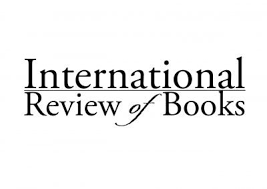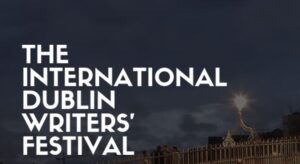Dec 23, 2024 | Editorial reviews, Interviews
Today, we’re talking with Dana Klisanin about her book, Norbu’s Secret
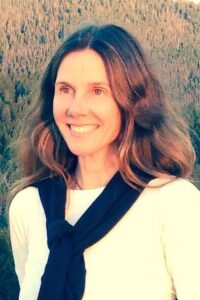 Tell us something unexpected about yourself!
Tell us something unexpected about yourself!
Believe it or not, most of my best story ideas come from my dreams! I like to think of my brain as a 24-hour creativity machine that even works while I’m asleep. Whether it’s through Tibetan dream traveling or simply from dreams I remember, my nighttime adventures spark a lot of what ends up in Chronicles of G.A.I.A. It’s like getting to preview another world while I sleep, and then bringing that magic to life for readers.
Why do you write?
Why do people play music, sing, or dance? I write for the same reason—writing is a soul language. Through my words, I hope to inspire others. With my young adult books, I aim to spark a love for the planet and motivate readers to take action to protect our environment. Writing gives me a way to connect and share dreams and ideas that I hope can make a difference.
Where did you get the inspiration for your current book?
My inspiration came years ago, when I worked with the nonprofit Pachamama Alliance and learned about the Achuar people of the Ecuadorian rainforest. Known as the ‘dream people,’ they let their dreams guide their daily lives in ways that are both mystical and deeply practical. I wanted to create a story that would introduce readers to their culture and their role as protectors of the rainforest. Their message of interdependence and respect for nature is crucial for our planet’s long-term survival, and I hope readers feel inspired by their wisdom as much as I have.
What do you enjoy the most about your genre?
I love writing sci-fi and fantasy because it gives me the freedom to let my imagination run wild. There are no limits—anything I dream can become part of the story. Through these genres, I can explore big questions and create new worlds that inspire readers to see our own world with fresh eyes. It’s exhilarating to dive into places where magic, technology, and nature intertwine, and where anything feels possible.
How would you describe your writing process?
My writing process is a mix of curiosity, wonder, and a touch of dream-driven magic. I often start by asking my characters questions, letting their answers guide me deeper into the story, and I allow ideas from my dreams to spark new paths. Mornings are my favorite writing time—I begin at my desk, which has magical-looking patterns carved into the front, almost like a portal to other worlds. My laptop may be several years past its prime, but it’s still my gateway to adventure. Tea, almonds, and figs are always nearby, fueling my imagination, and my dog is my faithful timekeeper, reminding me to take breaks for a walk when I’ve lost track of time.
What do you think authors have to gain from participating in social media?
Social media offers authors a powerful way to connect directly with readers, fellow writers, and the larger literary community. It’s a space where we can share our ideas, inspirations, and works-in-progress, creating a sense of anticipation and building an audience even before a book is published. It’s also invaluable for discovering what resonates with readers, receiving feedback, and gathering inspiration from conversations and trends. Beyond promotion, social media allows authors to be part of a dynamic community, which can be energizing and motivating. For me, it’s about more than marketing—it’s about building relationships and sharing a love for stories.
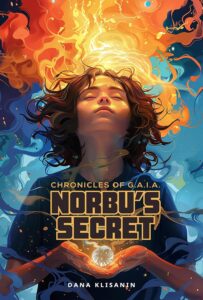 What advice would you have for other writers?
What advice would you have for other writers?
My advice to writers is this: think like molasses. Writing takes patience and persistence. Set aside time each day to write and stick with it. Once the book is written, remember that the editing and publishing process can be slow, and finding the right readers or getting reviews can take time and effort. Write because you love it—those hours, days, and years of creativity are yours, no matter what. Don’t let the public’s reception affect your joy in writing. And if molasses isn’t your thing, think like honey! Embrace the sweetness and let the journey unfold in its own time.
How do you select your books’ titles and covers?
I’m lucky to have a super creative and supportive family when it comes to selecting titles and covers! My sister, Melisca Klisanin, has illustrated two of my books, and we work closely to bring the story’s spirit to life. Once we have a few options, we gather input from other family members—usually over a lively dinner where we debate the pros and cons. Afterwards, my publisher and her team gave valuable feedback, and together, we made the final decision. It’s a collaborative, enjoyable process that makes each book feel even more special.
What’s your next step?
My next step is continuing the adventure with book three in the Chronicles of G.A.I.A. series. I’m excited to dive deeper into the characters’ journeys and explore new challenges they’ll face. There are a few surprises and twists that I think readers will love, and I can’t wait to share what’s next for Lexa and her friends!
What book do you wish you’d written?
It’s hard to choose just one because I love books across so many genres and age ranges! But if I had to pick for children’s literature, two come to mind: “Tuck Everlasting” and “The Golden Compass”. Each of these books invites readers to explore deep questions about life, courage, and the nature of the world—qualities I hope to bring into my own writing.
FIND DANA’S BOOK ON AMAZON
Dec 23, 2024 | Editorial reviews, Interviews
Today, we’re talking with Joseph Bingham about his book, Blue Dragonfly.
 Tell us something unexpected about yourself!
Tell us something unexpected about yourself!
I had a pet black widow spider when I was a young teen. I kept it in an empty peanut butter jar and fed it hornets that found their way into my basement study through a crack in the window. That same make-shift study was also where I kept my insect collection, which was housed in empty cigar boxes, and my cheap microscope, which I used to study protozoa. I grew the one-celled animals in bottles filled with stinky pond water. As you can imagine, I was not a typical young man. My wife says it best by claiming I’m too much like Pedí, the male protagonist in my book—strange, nerdy, and more comfortable talking to the gopher snakes I find and pick up than I am to people. She also says my best friends are the fantasy ones I write about.
Why do you write?
I have always enjoyed reading. In grade school, I walked once a week to our local library and brought home a stack of books. My first fantasy reads were the Wizard of Oz stories by L. Frank Baum. I read all of them. Soon, my reading, besides fiction and fantasy, included nature books, especially those about entomology, herpetology, and paleontology. Deciding to write was an extension of my joy and interest in reading a good story or learning new facts in a book. I loved to make up and tell stories to my children when they were young, and I have continued doing it with my grandchildren. The stories often contain some creature from the natural world, but I like to pepper the tale with a bit of fantasy. After I retired from work, I chose to try to write a story that would include all my interests. But with no experience writing, I started the learning process. It has taken me over ten years to get my story ready for publication.
Where did you get the inspiration for your current book?
I consider myself an amateur entomologist and herpetologist, so writing about insects, frogs, and snakes is natural. They are a big part of my story. The tropical world I created in Blue Dragonfly comes from several things. One of my favorite books is White Waters and Black. I read it for the first time as a teen. It tells the story of a scientific expedition to Bolivia and Brazil in the 1920s. The stories of their adventures in the tropics fascinated me, and I desired to experience South America myself. Later, I was able to live in Brazil for several years and learned Portuguese, which I speak fluently. Tropical diseases are another subject that I have woven into my story. When I went to medical school, I desired to pursue a speciality that would include tropical medicine. However, my wife had twins while we were still in medical school, and suddenly, having a young family did not seem a good option for pursuing a career that might include living and working out of the country. However, after my children were grown, I got additional training in tropical medicine. I went to Africa and the Amazon several times with organizations bringing healthcare to people in need.
What do you enjoy the most about your genre?
I have found the young adult genre to be one in which, depending on the subject matter, middle-graders and older adults can also read and enjoy. I like the diversity of readers. The fantasy in my story is more magical realism, where the tropical world of Pedí and Adací is similar to ours and where the magic or fantasy is woven into the world without overwhelming it.
How would you describe your writing process?
Long! When I first decided to write a book, I talked to my son, who has some writing skills. His advice at the time was to start getting my stories down, even in my worst way, and then figure out the best way to express them later. I began attending writing conferences, purchased books on how to write, subscribed to Writer’s Digest, and got the help of several freelance editors. Blue Dragonfly was written and re-written over a hundred times. Nevertheless, though difficult, the journey was delightful, as I spent time with my fantasy friends.
What do you think authors have to gain from participating in social media?
You are asking the wrong person. I’m an old guy with little experience with Instagram, TikTok, and other social media. I understand it is a great way to communicate with others and share my book, but I will have to learn how to do it.
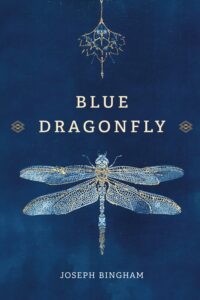 What advice would you have for other writers?
What advice would you have for other writers?
Write about things you are interested in. Find joy in your characters. Keep trying and learning.
How do you select your books’ titles and covers?
The title comes from a mythical insect creature with magical powers that Pedí’s ancestors used to worship. Pedí searches for one all his life. Because of the title, my son suggested I make a cyanotype book cover. The blue of cyanotype art is always fascinating. I started experimenting with cyanotypes, but in the meantime, my wife found a perfect cyanotype dragonfly art piece online. Arianna Guirola created it. Arianna’s art is beautiful, and I immediately knew her dragonfly was what I wanted for my cover. Fortunately, Arianna gave me her permission to use the dragonfly.
What’s your next step?
Though Blue Dragonfly has an ending, it opens the door for more adventures. I have already sketched out many ideas and have written parts of the next story, but I have not yet launched into the full writing of the sequel. I have a complete draft of another book, a non-fantasy contemporary story. I may also continue working on it as well.
FIND JOSEPH’S BOOK ON AMAZON
Jul 18, 2024 | Editors' Blog, Interviews, Sci-fi
Today, we’re talking with Alastair Bowman about his book,
Tell us something unexpected about yourself!
I love living in France – and I will get my European passport back in a couple of years!
Why do you write?
To share. And to make people think.
Where did you get the inspiration for your current book?
My passion for economics and social justice.
What do you enjoy the most about your genre?
Scifi gives lots of possibilities to explore new worlds and see ourselves in them.
How would you describe your writing process?
I generally start early. If nothing feels right, then I read and re-write what I’ve previously written or go and do something else. It has to feel right in the moment even though it will likely be re-written.
What do you think authors have to gain from participating in social media?
Community.
 What advice would you have for other writers?
What advice would you have for other writers?
Keep going, as long as you enjoy it.
How do you select your books’ titles and covers?
The title is whatever feels right. I held a competition for the cover, with the brief to convey jeopardy using the world, a drop of water and barbed wire. The winner added the eye to make a tear, which I think is very effective.
What’s your next step?
I am writing the sequel to ‘Creative Destruction’ – ‘Icarus Falls’.
What book do you wish you’d written?
I owe a lot to John Steinbeck’s ‘The Grapes of Wrath’, but for the writing, either Kazuo Ishiguru’s ‘The Remains of the Day’ or Sebastian Faulk’s ‘Birdsong’.
How do you react to seeing a new review for your book?
It’s always flattering to have a reader, and even better if they give feedback.
FIND ALASTAIR’S BOOK ON AMAZON
Jul 18, 2024 | Editors' Blog, Interviews, Mystery, Romance
Today, we’re talking with Donna B. Comeaux about her book, Breathe for Me
Tell us something unexpected about yourself!
The most unexpected thing about me is my tenaciousness to complete and publish my novel. It’s quite an accomplishment. And I’ve enjoyed every moment of this journey.
Why do you write?
I write because there would be nowhere for the crazies to go that are inside my head.
Where did you get the inspiration for your current book?
Every Breath You Take by Judith McNaught.
What do you enjoy the most about your genre?
Because there are so many subgenres, writers now have the freedom to be more creative. Romantic suspense can encapture bad villains and include whimsical fantasies or unleash dragons. It really excites me to be able to explore this amount of creativity without the boundaries that once held us back.
How would you describe your writing process?
My writing ritual requires me to get up before sunrise to check my social media platforms, then begin work on the rewrites of my next novel. It’s literary fiction. I hope to launch it by early 2025.
What do you think authors have to gain from participating in social media?
If you exude patience and do it right, authors can gain meaningful relationships through social media. But it takes time, one person at a time. Being authentic is key. I’m not at all good at this and it’s taken me a while to accept the fact that I must heavily invest in this part of book marketing.
 What advice would you have for other writers?
What advice would you have for other writers?
I encourage all writers to do two things: never give up on their dreams, and perfect your writing in every way possible. Proofread your work. It’s the only representation of you that your readers see.
How do you select your books’ titles and covers?
I usually begin writing a book with a theme in mind, and from that theme comes my title. I will sometimes sit for hours just working on the title. And there have been times that I won’t begin writing until the title is firm in my mind.
What’s your next step?
I’m presently working on a literary fiction novel that I hope to release in early 2025. After that, I have a crime and detective novel halfway finished that I would love to complete. I have many stories I’ve started, so I’m not short of ideas or projects to work on.
What book do you wish you’d written?
Not so much a book but a style of writing. I want to one day write a book that George Orwell refers to as windowpane writing. To write that clear and concise fascinates me.
How do you react to seeing a new review for your book?
Nothing excites me more than receiving new book reviews. I get to hear everyone’s viewpoint of the book. I learn a lot from my readers. I’ve even thought of new ideas for a book while reading them. Most of all, they make me smile.
FIND DONNA’S BOOK ON AMAZON
Jul 11, 2024 | Editors' Blog, Fantasy, Interviews, YA
Today, we’re talking with TF Burke about her book,
Tell us something unexpected about yourself!
I have been fencing sword and dagger for over a decade in both tournaments and in melees (done in a safe manner) with up to several hundred fencers on a side.
Why do you write?
I’ve lived in worlds of story since I was very young and I find that writing nourishes my soul, along with helping me to understand myself and the world around me better.
Where did you get the inspiration for your current book?
I find the “what-if” games takes me to some incredible places. In my current book I asked a lot of what-if’s when it comes to mythology, some new-age beliefs with chakras, a bit of astrology, faery lore, ancient history, and stories similar to Lord of the Rings and then mixed it with a message for young people that no matter what, they are always enough.
What do you enjoy the most about your genre?
My genre is YA Fantasy and I’d have to say the wonder beats of Fantasy mixed with the ability to explore topics with an idealistic lens is rather beguiling.
How would you describe your writing process?
First is the what-if phase and getting a sense of who the characters are. After that I tend to have a broad sense of plot, followed by a messy draft that gives me an idea where the story’s “mile-markers” are. After that, I write. I like having enough wiggle room to be surprised as the story organically reveals itself but have enough of a path that I don’t end up in the weeds.
What do you think authors have to gain from participating in social media?
Being able to connect with one’s readers is one of the highlights with writing in today’s world. After all, the space between writer and reader… well, that’s where the true magic happens. Also, social media is one of the places where a creator can shine. For example, it’s enjoyable sharing my under 30 second faery lore reels that are based on the research that I do.
 What advice would you have for other writers?
What advice would you have for other writers?
Understand that your first draft’s job is not to be pretty nor should it be compared to the finished work of other authors. It’s job is simply to exist. You will find gold within its pages… ideas for how to structure your story. You will find things that don’t work and you will throw away but even those throwaway things will probably lead you to ideas you wouldn’t have had otherwise. Writers write. Celebrate your chaotic messy starts.
How do you select your books’ titles and covers?
Excellent question! Titles are hard. It took me a long time to come up with the title to Faeries Don’t Lie and it’s actually based on something my protagonist said… plus, I love the little bit of a twist in it…Faeries Don’t Lie…or do they? As for covers, I have a designer in Romania who is absolutely wonderful! I originally found her on 99 Designs. I give her an idea of the “feel” of the book and she sends me her vision of it. So far, she has been spot on!
What’s your next step?
My next step is to continue working on Book 2 in the Heart of the Worlds series, Faeries Don’t Forgive, and have it launch in Feb 2025. And after that, it’s working on Book 3, Faeries Don’t Hide, which comes out November 2025.
What book do you wish you’d written?
I’m actually writing the books that I want.
How do you react to seeing a new review for your book?
It’s exciting to get feedback and I definitely appreciate my readers taking time out to leave a review.
FIND TF’S BOOK ON AMAZON
Jul 10, 2024 | Editors' Blog, Crime, Interviews, Thriller
Today, we’re talking with Bob DeGeorge about his book,
Tell us something unexpected about yourself!
I’m a retired big city cop who now lives in a small town in Texas so I can play cowboy for the rest of my life.
Why do you write?
I always liked reading police drama. With the exception of a very few writers, these stories lacked the little details or, simply got those details wrong, that make a story real. Also, most big city cop stories take place in New York or Los Angeles. San Jose and Silicon Valley have a lot of interesting stories, I know, because I worked there for 27 years. After I retired, I decided to put those stories in a book series.
Where did you get the inspiration for your current book?
My stories come from the real people and real crimes that I have investigated over the years. As I like to say, ‘that’s the way it really was, give or take a lie or two.’
What do you enjoy the most about your genre?
Writing a police procedural is actually more challenging than living it. But that’s what I like about it. The challenge of not just getting the facts of the investigation right, but getting every detail of the story and the characters correct. And then making sure it is an interesting and exciting story.
How would you describe your writing process?
I am a linear writer. I decide on who and what is going to be investigated and then proceed to follow my characters through their investigation much like investigations unfold in real life, with all the twists and turns and false starts, until the main bad guy is caught.
What do you think authors have to gain from participating in social media?
Being able to connect with your readers all over the world is definitely a plus. My readers can contact me, and I can contact them, either in a large group or one-on-one.
 What advice would you have for other writers?
What advice would you have for other writers?
I’m hardly one to give other writers advice since this is my first book, and I’m a newbie myself. In my case, I picked a topic I knew a lot about and worked hard to turn it into an interesting story.
How do you select your books’ titles and covers?
From the beginning, I knew this was going to be a series, so the titles had to connect. From my days investigating financial crimes, we always said, ‘follow the money.’ So, ‘Follow the Money’, ‘Other Peoples’ Money’, and ‘Where’s the Money’. As far as the book covers go, I hired a professional book cover designer, Tobi Afran, who worked very closely with me to bring the idea of each book to life.
What’s your next step?
Book two is in final editing and will be released in a couple of months. Book three is outlined in my mind, and as soon as I’m done editing book two, I’ll get busy writing it. I will promise three books in the series. If I find an audience that likes my work, there will be more.
How do you react to seeing a new review for your book?
Now that’s a loaded question. If it’s a good review, of course, I feel great. If it’s not so good, I take a deep breath and then see what I can do to fix it. If I’m getting dinged for something technical, I’ll see if I can fix that in the next book. But if a reviewer just doesn’t like my story or my storytelling style, there is not much I can do about that. I guess my book just wasn’t for them.
FIND BOB’S BOOK ON AMAZON
 Tell us something unexpected about yourself!
Tell us something unexpected about yourself! What advice would you have for other writers?
What advice would you have for other writers?
 Tell us something unexpected about yourself!
Tell us something unexpected about yourself!
 What advice would you have for other writers?
What advice would you have for other writers?
 What advice would you have for other writers?
What advice would you have for other writers?
 What advice would you have for other writers?
What advice would you have for other writers?
 What advice would you have for other writers?
What advice would you have for other writers?